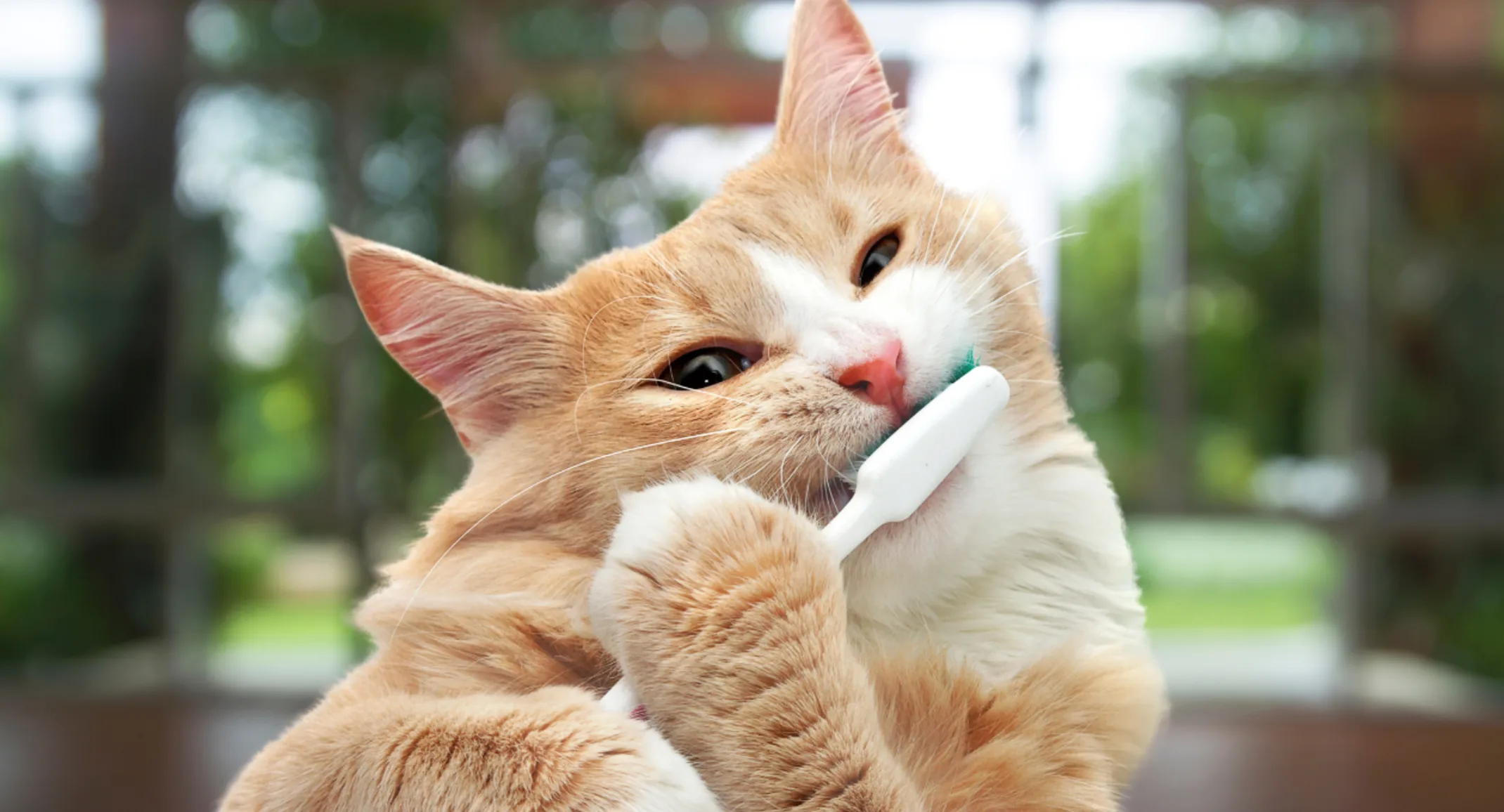🦷 Homecare Guidelines for Oral Health in Dogs and Cats
October 3, 2025 · For Pet Owners

Why it matters:
Dental disease is one of the most common health problems in pets, and it can lead to pain, infection, tooth loss, and even impact the heart, kidneys, and liver. Regular veterinary dental cleanings are essential, but home care plays the most significant role in preventing dental disease.
1. Daily Brushing (Gold Standard)
Use a pet-safe toothbrush or finger brush and a veterinary-approved toothpaste (never human toothpaste).
Brush daily, if possible, or at least several times a week.
Start slowly, let your pet lick the toothpaste, and reward with praise or a small treat to build a positive routine.
2. Dental Diets & Chews
Specially formulated dental diets can reduce plaque and tartar. Look for products with the VOHC seal (Veterinary Oral Health Council).
Dental chews help scrub teeth mechanically and encourage chewing, but always choose appropriately sized chews and supervise to prevent choking.
Avoid bones, antlers, or hard nylon toys—they can cause tooth fractures.
3. Water Additives & Oral Rinses
Veterinary-approved water additives can help reduce bacteria and freshen breath.
Oral rinse or gels may be recommended if brushing isn’t possible.
4. Toys for Dental Health
Rubber or rope toys designed for dental care can massage your pet's gums and clean their teeth as they chew.
Rotate toys to keep them interesting, and ensure they’re not too hard.
5. Routine Monitoring
Check your pet’s mouth regularly for:
Bad breath
Red or swollen gums
Tartar buildup (yellow or brown deposits)
Dropping food, chewing on one side, or reluctance to eat hard kibble
If you notice these signs, schedule a veterinary exam.
6. Professional Cleanings
Even with excellent home care, pets need professional dental cleanings under anesthesia for a thorough evaluation and scaling beneath the gumline. Your vet will guide you on how often your pet needs them.
✨ Tip for Success: Consistency matters! Even if you cannot brush your pet's teeth every day, incorporating a mix of brushing, chews, and rinses will significantly improve your pet’s dental health.
